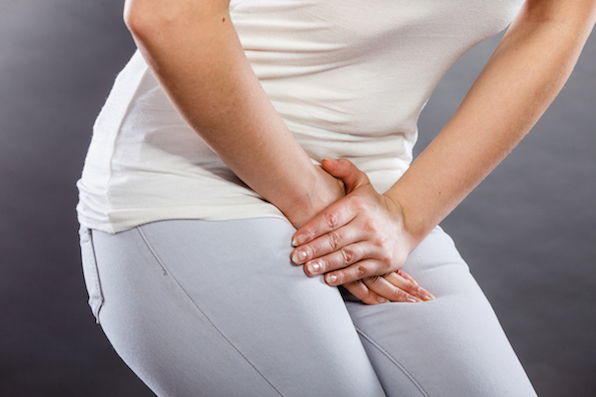Got an itch you just can’t seem to scratch? There’s no need to be embarrassed, vaginal itching is far more common that many realise. Most women will experience it at some point in their lives and it can cause much discomfort. This being said, feminine itching could be a sign of an underlying issue.
Firstly, is it normal to have an itchy vagina? It’s possible that some women may experience a slight temporary irritation due to changes in hormones in the body at certain times of the month, but generally speaking, no, it’s not normal to have an itchy vagina or vaginal irritation.
According to Dr Alex Eskander, Consultant Gynaecologist at The Gynae Centre in London: “Vaginal itching will not usually go away by itself and will require intervention. Causes of vaginal itching, burning, and irritation can be varied. Some of the most common causes of vaginal itching we see at the clinic include vaginal candidiasis – more commonly known as a yeast infection or thrush – reactions to feminine hygiene products, and STDs. Even if you think you know what might be causing it, it’s important to get checked out by your GP or gynaecologist to ensure it’s nothing more sinister.”
The Gynae Centre is based just off Harley Street and provides completely confidential appointments. You can expect the very highest standards of care and a compassionate team who will put you at ease. You can now book a consultation with a gynaecologist online using our quick and easy booking system.
Reasons why you have an itchy vagina
Some of the most common causes of feminine itching that we see at The Gynae Centre include:
Using vaginal cleaning products
The vagina has a delicate pH balance which can means that using feminine washes and wipes, douching and any other vagina cleaning products which alters this natural balance can actually be the cause of vaginal irritation and itching.
Dr Eskander explains: “The vagina is self-cleaning, meaning that it does not require any intervention. After exercise, avoid sitting in sweaty clothes as this can be a breeding ground for bacteria – change out of underwear, freshen up and ensure the vulva is kept dry to help prevent bacteria building up and causing issues.”
Thrush/yeast infection
Thrush (vaginal candidiasis) is a very common yeast infection in women whereby too much candida albicans is produced in the vagina, disrupting the delicate balance.It is caused by a fungus which thrives in warm, moist conditions, and can be triggered by sex or menstruation.
Although occasionally there are no symptoms at all, generally, symptoms of thrush include an itchy vagina and/or vulva, discharge that can look like cottage cheese, and swelling and soreness around the opening of the vagina. Women can also experience a burning feeling and cracked skin around vulva, pain when urinating, and pain during sex. Although slightly less common, thrush can also lead to rashes and painful skin between the fingers, under the armpits, and in the groin area.
“Treatment of thrush is usually quick and easy – it takes around a week for thrush to clear up with appropriate treatment. Usually an antifungal pill will be prescribed alongside, internal cream and/or pessaries in order to relieve the irritation. However, thrush can be recurring and if this is the case it’s essential you tell your GP or gynaecologist and they will be able to identify if there is an underlying issue.” advises Dr Eskander.
If you’ve got thrush and need quick, effective treatment, you can book a consultation online at The Gynae Centre here. Alternatively, you can call the admin team on 020 7580 8090.
Vagina grooming
Vagina beautification. Vajazzle. Dying. Bleaching. Waxing. Whatever your poison, it’s worth remembering that your choice of pubic grooming could be the cause of your vaginal itching. We all know the skin of the vulva and inside the vagina is incredibly sensitive; using harsh products on sensitive tissue can cause burning, irritation, redness and itching.
STDs
STDs are sexually transmitted diseases which are passed on through sexual contact like intercourse, or oral sex. They can spread quickly and easily between partners, and can also lead to permanent reproductive damage in both men and women.
Symptoms of STDs will vary depending on the type of STD, but genital herpes can cause severe irritation. Other symptoms of STDs can include skin rash, bumps or sores, unusual bleeding, swelling or redness on or around the vagina, change in discharge and weight loss. However, in many cases, there will be no symptoms at all. 70% of women infected with chlamydia, for example, will not show any obvious signs or symptoms or they may be so mild they are not noticed (FPA).
There is only on way to be 100% certain if you have an STD, and that’s to have an examination and a sexual health test. There’s no need to be embarrassed and it’s recommended that any sexually active person has regular sexual health tests. For peace of mind we offer full and mini sexual health screens at our London clinic which are entirely confidential and convenient. Treatment will depend on the type of STD, but can vary from antibiotics, or antiviral drugs. Untreated, STDs can lead to serious complications like infertility.
“With STDs so prevalent – particularly in and around the London area – we recommend a sexual health test each time you change sexual partners, and that everyone practices safe sex.” advice Dr Eskander.
Hormonal changes
Throughout your menstrual cycle hormonal changes take place in the body. A few days before your period, progesterone levels decrease and estrogen levels increase again to prepare your ovaries for the next cycle of ovulation. If the estrogen levels don’t increase quickly enough you may experience some vaginal dryness and itchiness. However, this should disappear after a few days. If the itching continues and is accompanied by any other symptoms, like unusual discharge, then it’s time to seek advice from a professional.
If in doubt, book with your GP, or make an appointment with a gynaecologist. At The Gynae Centre we provide private gynaecology appointments in central London with some of the very finest specialists in the country. Call our admin team on 020 7580 8090 to book, or use our online booking system to reserve your consultation now.






